
April 2023 | procurementmag.com UPS ADVOCATING SUPPLIER DIVERSITY Why global inclusion is the blueprint to value creation WOMEN IN PROCUREMENT THE SMART CUBE Blockchain technologies TRAILBLAZER Lisa Martin CPO of GFK TAI ENGINEERING Driving distribution with data analytics CONGA A new frontier for contract management







A BizClik Event Join the Virtual Event Disrupting Procurement & Supply Chain 28TH JUNE 2023 VIRTUAL CONFERENCE
Join the must-see virtual event disrupting procurement and supply chain on the 28th of June 2023.
This year, we are bringing you a solely virtual event, Procurement & SupplyChain LIVE Virtual will highlight the innovators changing the industry. Brought to you by BizClik, Procurement & SupplyChain LIVE Virtual will be held on 28th June 2023, streaming remotely to virtual audiences around the world.
The unmissable event will feature expert keynote speakers, interactive fireside and panel discussions, and more. Do not miss this 1-day deep dive into the disruption and the future of procurement, supply chain and logistics.

Sponsorship Opportunities
Do you want to position your brand in front of thousands of innovators, decision-makers and influencers?


Sponsor Procurement & SupplyChain LIVE to unlock the future of your business, access thousands of potential partners and influence businesses at the highest level.

Both global giants and innovative start-ups alike can discover the ideal platform with easy access to an engaged and active audience.
Contact a member of our team today to discuss sponsorship opportunities.
See you on 28th June 2023.
It’s time for DISRUPTION. GET YOUR PASS SPONSORSHIP
Innovators are paving the way for a more resilient, sustainable, and efficient future. The rules have changed. It’s time for disruption.
▶ Watch our showreel from PROCUREMENT & SUPPLY CHAIN LIVE London 2022



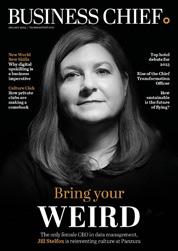







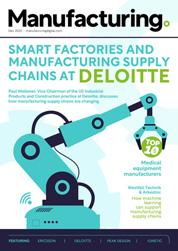











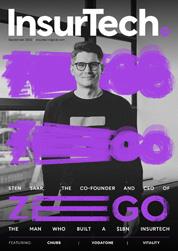






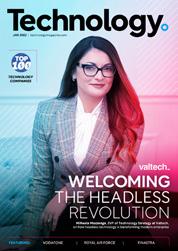
















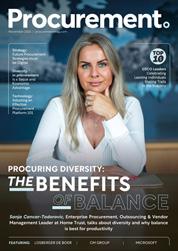





bizclikmedia.com
Ways to Work With us
We produce Digital Content for Digital People across 20+ Global Brands, reaching over 15M Executives
Digital Magazines

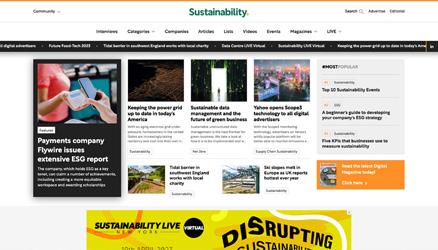
Websites
Newsletters
Industry Data & Demand Generation
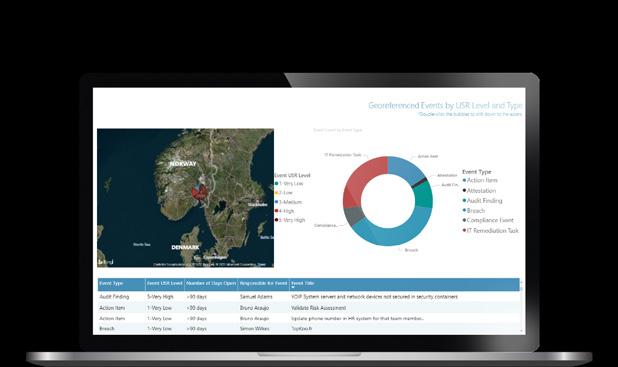
Webinars: Creation & Promotion
White Papers & Research Reports
Lists: Top 10s & Top 100s
Events: Virtual & In-Person


Work with us

EDITOR-IN-CHIEF
ILKHAN OZSEVIM
CHIEF CONTENT OFFICER
SCOTT BIRCH
MANAGING EDITOR
NEIL PERRY
PROOFREADER
JESS GIBSON
CHIEF DESIGN OFFICER
MATT JOHNSON
HEAD OF DESIGN ANDY WOOLLACOTT
LEAD DESIGNER
JUSTIN SMITH
The Procurement Team

FEATURE DESIGNERS
MIMI GUNN
SOPHIE-ANN PINNELL HECTOR PENROSE
SAM HUBBARD
REBEKAH BIRLESON
ADVERT DESIGNERS
JORDAN WOOD
DANILO CARDOSO
CALLUM HOOD
VIDEO PRODUCTION MANAGER
KIERAN WAITE
SENIOR VIDEOGRAPHER HUDSON MELDRUM
DIGITAL VIDEO PRODUCERS
MARTA EUGENIO
ERNEST DE NEVE
THOMAS EASTERFORD
DREW HARDMAN

JOSEPH HANA
SALLY MOUSTA
JINGXI ANG
PRODUCTION DIRECTORS
GEORGIA ALLEN
DANIELA KIANICKOVÁ
PRODUCTION MANAGERS
JANE ARNETA
MARIA GONZALEZ
CHARLIE KING
YEVHENIIA SUBBOTINA
MARKETING MANAGER ANDREW STUBBINGS
PROJECT DIRECTOR
CRAIG KILLINGBACK
MEDIA SALES DIRECTOR
JAMES WHITE
MANAGING DIRECTOR
LEWIS VAUGHAN
CEO
GLEN WHITE
THE COMMUNITY
JOIN
Procurement Magazine looks at the consequences of diversification and the stultifying outcomes of failing to do so. An old adage stipulates that you shouldn’t put all your eggs in one basket, and supplier diversity seizes on this maxim
“Employees expect companies to address inequities, with both current and potential employees thinking more favourably of brands that are committed to supplier diversity,” says Kris Oswold, Vice President of Global Supplier Diversity at UPS.
Supplier diversity is far-reaching, in that it promotes a more inclusive and equitable economy. When businesses only work with a select few suppliers – many of whom are already established and have more resources, connections, and opportunities than smaller businesses, particularly those that are minority-owned – the same companies continue to benefit financially and reputationally.
This can create a cycle of exclusion where the same suppliers keep getting all the business, while others struggle to grow.
Companies that seek out and work with diverse suppliers can help level the playing field and give smaller or underrepresented businesses a chance to compete. This not only helps those businesses grow and succeed, but it also brings new perspectives and ideas to the table, which can lead to innovation and better products or services.
Kris Oswold explores this important facet of modern business and procurement in this issue.

ilkhan.ozsevim@bizclikmedia.com


PROCUREMENT MAGAZINE IS PUBLISHED BY © 2023 | ALL RIGHTS RESERVED FOREWORD procurementmag.com 7
ILKHAN OZSEVIM
Diversifying your suppliers means nothing less than diversifying your opportunities
“Employees expect companies to address inequities, with both current and potential employees thinking more favourably of brands that are committed to supplier diversity”








19TH APRIL 2023 VIRTUAL CONFERENCE GET YOUR PASS SPONSORSHIP Join the Virtual Event Disrupting Sustainability A BizClik Event







78 WOMEN APRIL 2 023 CONTENTS
14 BIG PICTURE US Space Force opens up launch of procurement contracts to non-governmental providers 16 THE BRIEF The latest insights from the world of procurement 18 TIMELINE A timeline of global procurement 20 TRAILBLAZER Lisa Martin 22 FIVE MINS WITH Sayan Debroy 20 14 DEPARTMENT OF T HE AIRFORCE M M X X U NITEDSTAT E S SPACEFORC E
UP FRONT

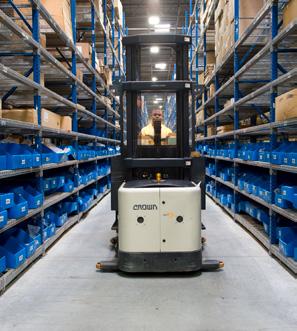

52 70 42 62 10 April 2023 FEATURES 42 PUBLIC PROCUREMENT How private engagement stimulates public procurement and the economy 52 DATA ANALYTICS Creating value through optimisation 62 CONTRACT MANAGEMENT The next frontier of contract management 70 SUPPLIER DIVERSITY Kris Oswold, VP of UPS: Advocate of Supplier Diversity 78 TOP 1 0 Women in procurement CONTENTS

procurementmag.com 11 APRIL 2 023 28 COMPANY REPORT 28 G4S Driving towards net zero across its UK vehicle fleet
BIG PICTURE
US Space Force opens up launch of procurement contracts to non-governmental providers Los Angeles, United States

US Space Force officials are set to meet industry executives in Los Angeles to discuss the finer details of the upcoming national security space launch procurement. Non-governmental organisations and companies expect to hear details about the Space Force’s plan to attract new launch providers to compete for as many as 70 mission contracts projected for the 2025-2034 timeframe.
The move marks a growing trend of partnerships between public and private organisations to provide services to the public while simultaneously generating revenue through significant procurement contracts.
April 2023
DEPARTMENT OF T HE AIRFORCE M M X I X U NITEDSTAT E S SPACEFORC E

THE BRIEF
BY THE NUMBERS
Improving Human Lives through Knowledge, Data and Understanding
“Diversity, equity, and inclusion efforts must expand beyond employees, and should include suppliers and customers as well”
READ MORE
“You really need the analytics to support your decisionmaking process”
Walter Mitchell, CEO, Tai Software
Kris Oswold, Vice President of Global Supplier Diversity, UPS
“Organisations need to be far more proactive by anticipating change rather than responding to it.”
 Charlie Bromley-Griffiths, Corporate Counsel, Conga
Charlie Bromley-Griffiths, Corporate Counsel, Conga
EDITOR'S CHOICE
READ MORE
INDIA'S RAGPICKERS: AN INSIGHT INTO CIRCULAR ECONOMIES?
Indian Ragpickers, much like the late Rag-and-Bone Men of the West, play an important role in India's plastics recycling – is this an insight or exploitation?
READ MORE
PROCUREMENT PREDICTIONS 2023
ACCORDING TO ARDENT AND IVALUA
Ardent Partners in partnership with Ivalua, takes a look at 'The Big Trends' of procurement for the year 2023 in recent research
READ MORE
READ MORE
16 February 2023
“We've got analytics implemented from outside sources like DAT, Parade.ai, and Greenscreens. ai – all tools that are involved in the analytics work”
Walter Mitchell CEO, Tai Software
“By 2025, we want at least 40% of our passenger cars to be zero carbon, and all of them by 2030”
Jon Willescroft Chief Procurement Officer, G4S
“Organisations need to be far more proactive by anticipating change rather than responding to it”
Charlie Bromley-Griffiths Corporate Counsel, Conga
2023
April
Kris Oswold, VP of UPS: Advocate of Supplier Diversity
According to Kris Oswold, supplier diversity is a business strategy that addresses the systemic biases resulting in fewer opportunities, limited access, and less capital available to diverse business owners. An executive with more than 33 years at UPS, Oswold – Vice President of Global Supplier Diversity –brings a wealth of experience to the role. “For a corporation like UPS, supplier diversity means working to ensure thirdparty spend goes to companies whose owners reflect the diversity of the population,” she says.
“The data is clear and the experiences are real. Without intentional efforts to develop and include Black, Hispanic, Asian, Native American, women, veteran, LGBTQ+, and disabled-owned businesses, these companies do not have equitable access to contract opportunities with corporations.”
At UPS, contracts are awarded based on who brings the best value. “Diverseowned businesses often just need the opportunity to show what they can do to a procurement group that’s open to new suppliers and understands the business value of diversity,” Oswold says.
PROXIMA Proxima's Simon Geale explains that sustainability must be ingrained as a value along with cost and quality if procurement is to make progress on net-zero
ACCENTURE
Saudi Aramco signs contracts worth US$7bn with 100+ key suppliers with Accenture positioned as key player in its consultancy and digitalisation journey
PROCUREMENT BURNOUT
Research has highlighted five main causes of burnout, many of them closer to home than previously thought
AVAILABLE PROCUREMENT RESOURCES
Hackett Group's 2023
Key Issues report finds procurement fallouts and rising pressures will need to be shouldered with signs of compounding effects
U P
APR 2023
D O W N
procurementmag.com 17
A TIMELINE OF GLOBAL PROCUREMENT
AS COMMERCIAL ORGANISATIONS AND COLLABORATION EXPANDED THROUGHOUT HISTORY, PROCUREMENT WENT FROM A TRIBAL, TO A NATIONAL, TO A GLOBAL AFFAIR.
1947
1400s
The age of exploration
The Age of Exploration was a period of global exploration and trade, during which European explorers established trade routes to Asia, Africa, and the Americas.This era marked the beginning of global trade and commerce, and it paved the way for the development of modern procurement practices.
As trade routes expanded, merchants began to develop sophisticated procurement strategies to source goods from different regions, creating the foundation for today's global supply chains.
The establishment of GATT
The General Agreement on Tariffs and Trade (GATT) was established in 1947 as a framework for regulating international trade. GATT instituted a set of rules and principles for trade among member countries, including rules on tariffs, subsidies and non-tariff barriers. Over time, GATT evolved into the World Trade Organisation (WTO), which continues to regulate global trade today. The establishment of GATT/WTO created a more predictable and stable environment for international trade, providing a foundation for global procurement.
1990s
The advent of systematic E-procurement
Electronic procurement, or e-procurement, refers to the use of digital technologies to manage procurement processes. The advent of the internet in the 1990s made it possible to develop e-procurement systems, enabling companies to streamline their procurement processes and automate many routine tasks. E-procurement has since become an essential part of global procurement, allowing companies to manage their procurement operations more efficiently and effectively.
TIMELINE
18 April 2023
2000s-2010s
The rise of China as a major global sourcing hub
In the 2000s, China emerged as a major player in global procurement, thanks to its low labour costs and large manufacturing base. Many companies began to source products and services from China, creating a significant shift in global supply chains. China's rise as a sourcing hub has had a major impact on global procurement practices, with many companies now using sophisticated procurement strategies to manage their relationships with Chinese suppliers.
2000
The United Nations global compact
The UN Global Compact was a voluntary initiative launched by the United Nations in 2003 to promote sustainable and responsible business practices. The initiative encourages companies to adopt sustainable procurement practices, such as sourcing products and services from suppliers that adhere to high environmental and social standards. The compact has had a significant impact on global procurement by raising awareness of the importance of sustainability and social responsibility in procurement on a global scale.
2020s
Pandemic and war: disruption
COVID-19, which took hold in earnest in 2020, and the Russian invasion of Ukraine in 2022 have both had an extensive impact on global procurement practices and supply chains. Together, they have caused significant disruptions, forcing companies to rethink their procurement strategies and prioritise supply chain resilience over traditional, predictable approaches.
As a result, many companies have been forced to diversify their supplier base and develop contingency plans to manage supply chain disruptions. The pandemic and Ukraine war have highlighted the importance of risk management in procurement, and it is likely to have long-lasting effects on global procurement practices for years to come.
procurementmag.com 19
Lisa Martin
Ahighly experienced Chief Procurement Officer with a demonstrated history working across multiple industries, Lisa Martin is a strong purchasing professional skilled in Acquisitions, Facility Management (FM), Strategic Sourcing, Business Transformation, and Mergers & Acquisitions (M&A).
She joined GSK from Teva Pharmaceuticals, where she held the position of Senior Vice President and Chief Procurement Officer.
Prior to that, Martin spent 11 years at Pfizer. As Senior Vice President, she led worldwide procurement, realestate, corporate services, and facilities management for the R&D and commercial portfolio.
Martin has also held roles with Warner Lambert and Sony Pictures Entertainment.
In 2018, she was listed in the top 30 of the Procurement Power List UK & Europe, and she became only the second woman
to be honoured with the J. Shipman Award – awarded to an individual who has performed distinguished service for the cause and advancement of the supply management profession – in 2013.
• Lisa Martin became only the 2nd woman to be honoured with the J. Shipman Award – awarded to an individual who has performed distinguished service for the cause and advancement of the supply management profession
• She is a bonafide expert with almost 25 years’ experience in the procurement industry

20 April 2023
TRAILBLAZER
Chief Procurement Officer of global pharmaceutical giant GSK, Lisa Martin is a force for procurement good

SAYAN DEBROY
Sayan Debroy, AVP and Solution Owner at The Smart Cube, throws light on how blockchain technologies are transforming procurement and supply chains

FIVE MINUTES WITH...
Q. PLEASE INTRODUCE YOURSELF
» My name is Sayan Debroy, and I’m the Associate Vice President and Solution Owner at The Smart Cube.
My role involves working directly with key decision-makers, such as Chief Experience Officers (CXOs), divisional heads, and partners in leading firms to develop solutions that work for them.
I have over 14 years’ worth of experience in building solutions for clients in the procurement and supply chain industry, bringing together specialists, data, and technology.
This has enabled me to develop a rich background in business advisory and project management, providing me with deep expertise in addressing issues that clients are facing in a transformative manner.
Q. WHAT EXACTLY IS THE SMART CUBE, AND WHAT IS YOUR ROLE IN THE COMPANY?
» For leading businesses around the world, The Smart Cube is a trusted partner in providing intelligence that enables their teams to become more insight-led and value-driven.
We work with clients to support them when it comes to tackling their most challenging issues, so that they can
determine the most appropriate strategies and generate the answers in an efficient manner.
Through custom research, advanced analytics, and best-of-breed technology, our goal is to transform data into valuable insights – enabling smart decision-making to improve business performance across both the top and bottom line. We refer to this as: intelligence, accelerated.
procurementmag.com 23
“MHI RECENTLY CONDUCTED A SURVEY AMONGST SUPPLY CHAIN PROFESSIONALS INTO BLOCKCHAIN, WITH 68% SAYING THEIR BUSINESSES INTEND TO ADOPT THE TECHNOLOGY WITHIN THE NEXT FIVE YEARS”
Q. COULD YOU TELL US ABOUT SOME TRANSFORMATIONAL TECHNOLOGIES IN PROCUREMENT AND SUPPLY CHAINS?
» In recent years, blockchain has come to the fore as a truly transformational technology with vast implications for procurement and supply chains. Blockchain is a shared digital system that allows users to record transactions and share information securely. Within supply chains, blockchain is used to move goods between parties. Vital information is recorded at each stage and all those involved are provided with a copy for record-keeping and authentication purposes.
This structure produces an audit trail from beginning to end and the data is tamper-resistant. It is therefore expected to significantly improve transparency and traceability of products within a supply chain.
The technology is perceived as being ground-breaking, having the potential to completely transform the way in which organisations conduct their business, particularly when it comes to supply chain management and procurement. For example, given the aforementioned characteristics of blockchain, the solution could also be utilised in the supply chain process for risk and quality assurance, contract compliance, and carbon footprint reporting. .
Q. WHAT IMPACT HAS THIS TECHNOLOGY HAD ON INDUSTRIES SO FAR?
» Since the inception of blockchain, the logistics industry has been one of the technology’s biggest supporters. Founded by some of the biggest firms in the global logistics and supply chain sector in August 2017, the Blockchain in Transport
Alliance (BiTA) is the largest alliance of its kind globally, with the coalition currently being made up of around 500 members in an estimated 25 countries. The aim of this association is to boost blockchain’s adoption in the logistics industry by establishing industry standards, educating individuals within the industry about blockchain technology, and encouraging the use of new solutions.
What’s more, companies have also started to utilise blockchain technology as part of their supply chains. Examples of this can be seen with multinational corporations, such as FedEx and Nestle, trialling blockchain solutions in an attempt to drive transformation within their sustainability and product safety initiatives.
Adding to this, MHI recently conducted a survey amongst supply chain professionals into blockchain, with 68% saying their businesses intend to adopt the technology within the next five years.
Q. WHAT ARE SOME OF THE DIFFICULTIES ASSOCIATED WITH ADOPTING BLOCKCHAIN?
» In spite of there being plenty of optimism surrounding blockchain, its adoption and application in most companies has, to date, been relatively limited. In fact, more than 80% of blockchain projects are currently in their proof-of-concept stage, with a small subsection of this number evolving towards full-scale deployment. This is due to blockchain’s adoption and scalability being fraught with numerous challenges.
Blockchain is also seen as being controversial due to environmental concerns regarding the technology. This pertains to issues concerning its energy emissions and usage. At the moment,
24 April 2023
FIVE MINUTES WITH...
blockchain needs significant volumes of energy to run. In turn, this produces a large amount of greenhouse gas emissions. Even though those working in the blockchain industry are researching energy conservation methods: in its current form, the technology has a substantial carbon footprint.
What’s more, there have been examples of blockchain failing to prove its value in the logistics industry. For instance, when Maersk and IBM launched TradeLens –a blockchain solution for the shipping sector – in 2018, the goal was to digitise container shipping on a safe and secure global tracking system. However, the firms announced late last year that they were ceasing operation of TradeLens, stating that the solution had failed to reach “the level of commercial viability necessary to continue work and meet the financial expectations”.
Adding to this, further issues surrounding blockchain’s use in supply chains range from data privacy and confidentiality concerns to there currently being a lack of industry standards in place, not to mention problems regarding integrating blockchain with pre-existing legacy systems.
Q. HOW SHOULD PROCUREMENT TEAMS APPROACH BLOCKCHAIN ADOPTION?
» When it comes to the initial adoption of blockchain technology within supply chains, procurement teams should begin this journey by running a select number of pilots or proof-of-concept projects. This allows organisations to test things out on a small scale and ascertain if the technology is viable for their business, before deciding whether they should make a sizeable investment.
Once a company has chosen to implement blockchain into its supply chain, there are several prerequisites it needs to meet prior to the tech adoption. Firstly, all parties involved must be willing to share data with each other, and they must all ensure the cost-benefit trade-off is advantageous for the completion of the project. All groups must be in agreement about making investments that allow the blockchain solution to capture and share relevant data.
procurementmag.com 25
“WE WORK WITH CLIENTS TO SUPPORT THEM WHEN IT COMES TO TACKLING THEIR MOST CHALLENGING ISSUES, SO THAT THEY CAN DETERMINE THE MOST APPROPRIATE STRATEGIES AND GENERATE THE ANSWERS IN AN EFFICIENT MANNER”













A BizClik Event Join the Virtual Event Disrupting Technology 8th JUNE 2023 VIRTUAL CONFERENCE
Innovators are paving the way for a more resilient, sustainable and efficient future. The rules have changed. It’s time for DISRUPTION.
Tech LIVE Virtual returns to highlight the innovators changing the industry through expert keynote speakers, interactive fireside and panel discussions. This exclusive 1-day virtual event will bring together the greatest voices in the industry for an essential deep dive into the future of Technology, AI and Cyber.
Brought to you by BizClik, Technology, AI and Cyber Magazines, the event will shine a light on essential topics such as the AI revolution, quantum computing, the virtual workplace, technology’s place in sustainability and much more.

It’s time for DISRUPTION.



Sponsorship Opportunities
Position your business as a pioneer in Technology and showcase your values, products and services at Tech LIVE Virtual.





This is your chance to share your innovations with the technology community by making an impact in front of fellow decision-makers and influencers as well as accessing potential partners via an active and engaged audience.



See you on the 8th June 2023.

SPONSORSHIP GET YOUR PASS
▶ Watch our showreel from TECH LIVE London 2022


28 April 2023
DRIVING TOWARDS NET ZERO ACROSS ITS UK VEHICLE FLEET

 WRITTEN BY: SEAN ASHCROFT PRODUCED BY: CRAIG KILLINGBACK
WRITTEN BY: SEAN ASHCROFT PRODUCED BY: CRAIG KILLINGBACK
procurementmag.com 29
G4S
Delivering a nationwide sustainable-fleet programme is a huge undertaking at the best of times, but doing so in the teeth of seemingly neverending automotive supply chain issues makes the challenge even more daunting.
To stay on course with sustainability targets, despite such difficulties, would be beyond some businesses, but this is exactly what the multinational security company G4S has achieved.
G4S is part of Allied Universal and is a security and facility services company providing integrated security solutions that allow clients to focus on their core business.

Globally, G4S spends over a billion dollars a year with suppliers and subcontractors, and overseeing all of this is Chief Procurement Officer Jon Willescroft, who manages 150 procurement people across the globe
A key area for Willescroft and his team right now is sustainability.
“Sustainability is a broad subject,” he says, “and you have to prioritise. I have top-down support from the executive committee, who align the procurement sustainability objectives with the corporate ones.”
In this way, the areas Willescroft agrees upon with the executive committee “become our absolute focus”.
G4S is taking big strides in its global 2050 net-zero commitment, and procurement is at the heart of the eco-driving programme.
Jon Willescroft, Chief Procurement Officer, G4S
G4S is one of the world’s largest security companies, and its Chief Procurement Officer, Jon Willescroft, is tasked with achieving net zero with its huge vehicle fleet
30 April 2023
G4S

procurementmag.com 31
At present, in the United Kingdom and Ireland (UK&I), an important focus of sustainability efforts centre around the decarbonisation of the company’s vehicle fleet. Willescroft says: “We’ve made great progress in the last year with our fleet decarbonisation. More than three-quarters of our new vehicle orders have been lowemission vehicles.”

G4S’ renewal programme around its vehicle fleet is ambitious. To help it decarbonise its car and light-commercial vehicle fleet, it turned in 2021 to global fleet leasing company LeasePlan, which is helping G4S UK&I decarbonise its fleet, while also working with it on using technology to drive cost savings.
Globally, G4S has about 15,000 vehicles. These include motorcycles and passenger cars, commercial vehicles and heavyarmoured vehicles for the cash business. It has around 2,500 in the UK and Ireland, of which roughly 1,600 are cars and commercial vehicles, and it is these vehicles LeasePlan and G4S are initially prioritising to make carbon neutral.
Under targets set out in its Road to Zero strategy, G4S aims to have all its passenger cars zero carbon by 2030, followed by light commercial vehicles
in 2035 and its entire fleet by 2040. It is also making use of telematics and fleet management tools to optimise operations and improve safety.
But in the face of ongoing supply chain issues in the automotive industry – caused by the global shortage of microchips – progress has been far from straightforward; G4S has been unable to freely move employees into more carbonfriendly vehicles as quickly as it would like, because the supply has not been there.
Most of the company’s operational fleet is low- to mid-range vehicles but, on the company car side, it also uses mid-range to premium vehicles.
“By 2025, we want at least 40% of our passenger cars to be zero carbon, and all of them by 2030”
JON WILLESCROFT CHIEF PROCUREMENT OFFICER, G4S
32 April 2023 G4S
“I don't think there's been a single car manufacturer that has escaped supply chain issues and labour shortages,” says Willescroft. “We're regularly facing a 12-month lead time on new vehicles.”


“With crisis after crisis hitting the automotive industry, we could easily have been blown off course in terms of timelines. If we had allowed chip shortages and supply chain disruption to impact us fully then this would have put us back by a year or two. It's a change programme. You're trying to push people and create momentum, and momentum is stopped in its tracks if you are waiting 12 to 15 months for a vehicle. But we've managed to keep on track with our targets.”
JON WILLESCROFT
TITLE: CHIEF PROCUREMENT OFFICER
INDUSTRY: SECURITY
LOCATION: LONDON UK
Jon Willescroft is an ambitious, energetic and commercial CPO, specialising in reshaping procurement in large, complex organisations. Jon currently leads procurement at G4S, part of the world’s largest security company, encompassing 150 people across 90 countries, and over $1bn spend. His focus at G4S is driving sustainable, commercial transformation across this complex global business and its supply chains. Prior to G4S, Jon held a number of procurement leadership positions in financial services and pharmaceuticals, as well as procurement advisory roles.
LeasePlan driving success on G4S sustainable fleet plans
Global fleet leasing company LeasePlan has overcome automotive supply problems to help security giant G4S decarbonise its UK fleet.
The sustainability programme G4S UK has wrapped around its huge vehicle fleet is ambitious, and to help it meet its targets it turned to global fleet leasing company, LeasePlan.

LeasePlan operates in 29 countries and runs a fleet of around 1.9 million vehicles globally. It is also a founding partner of the EV100, the global sustainability initiative run by the Climate Group – an international non-profit – to make progress on electrifying fleets worldwide.

In 2021 LeasePlan won the G4S tender to help decarbonise its UK and Ireland 1,600 car and light-commercial vehicle fleet.
But it’s not just about decarbonisation. LeasePlan UK is looking at all four pillars of the G4S organisation – all of which touch fleet: safety and compliance, data measured fleet performance, cost and service improvements as well as reducing environmental impact.
G4S’ Road to Zero strategy targets are ambitious. It aims to have all its passenger cars carbon neutral by 2030, followed by light commercial vehicles in 2035 and its entire fleet by 2040.
It is also making use of telematics and fleet management tools to optimise operations and improve safety.
Overseeing LeasePlan’s work with G4S is Head of Strategic Account Partnerships, Leannda Cheetham, whose team provides end-to-end contract management, service delivery and strategic direction for some of the UK’s largest fleets.
“To help G4S with their sustainability targets, we’re working hard to move their people into vehicles that will help with its net zero goals.”
But in the face of challenges in the automotive industry – rocked by supply chain crisis after crisis – this has been far from straightforward.
“The supply simply has not been there,” reveals Cheetham. Yet LeasePlan UK has succeeded in helping G4S move forward on fleet sustainability by finding creative ways to skirt supply chain challenges.
Its strategy to buy available hybrid and allelectric vehicle stock, under its established LeasePlan Flexible proposition meant that they could keep momentum for electric transition by leasing the vehicles on short-term contracts of anything between 3-24 months without the need for a long-term contract.
“We quickly scaled up our LeasePlan Flexible fleet to predominantly hybrid and all-electric rentals,” says Cheetham. “This means drivers were able use these vehicles whilst waiting for their new company vehicle to be delivered. This has helped transition as many G4S drivers, as quickly as possible into hybrid or all-electric vehicles.”

So what’s next for LeasePlan and G4S?
“We’re continuing to help roll-out G4S’ decarbonisation project through delivery of lowemission vehicles in any way that we can,” says Cheetham. She adds that the company is also “looking to find new and creative ways of adding value”.
“Mission critical fleets are in our DNA, and we’ve worked with some of the world’s largest organisations as they adopt new technologies.”
Cheetham continues: “We’re looking at things like how emerging technologies might be able to help G4S find cost savings, so we can add even more value through the relationship we’re building together.”
Discover more
We believe that every day is an opportunity to do better
We’re committed to helping our clients and their drivers to reduce their carbon footprint by promoting alternative-fuelled vehicles, particularly 100% electric cars and vans.



Discover more
JON WILLESCROFT CHIEF PROCUREMENT OFFICER, G4S
That it is still on track is thanks in no small part to LeasePlan, which has worked with G4S on creative ways to skirt supply challenges. Chief among them is LeasePlan’s strategy of buying available hybrid and allelectric vehicle stock, leasing them to G4S on short-term contracts of between three and nine months.
“More than three-quarters of the new cars we ordered last year were low-

emission vehicles,” says Willescroft. “This is around 450 vehicles and is a really big step up from where we were before. This alone removes over 1,000 tonnes of carbon from the environment.”
Willescroft himself moved to a leased electric vehicle while he was waiting for his Tesla company car. “By 2025, we want 40% of our passenger cars to have zero carbon emissions, and all of them by 2030.”
By 2040, G4S wants its entire UK fleet to be zero carbon – this target could prove to be the most technically challenging, because the remainder of the fleet will be its heavy armoured vehicles, which are used for cash protection.
“Cars are becoming easier with regards to the net-zero journey,” says Willescroft, “but heavy vehicles are harder to electrify because the technology just isn’t there at the moment to give you the battery range.
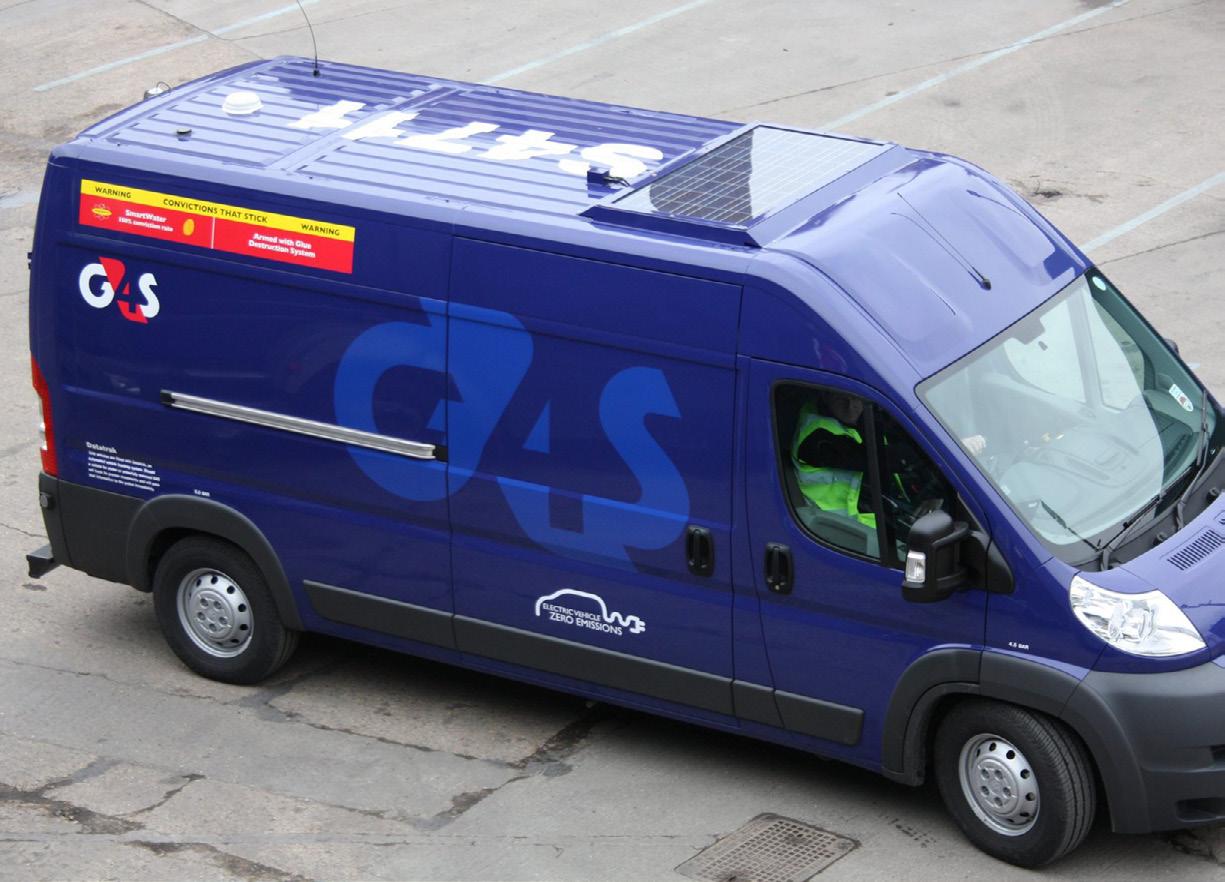
procurementmag.com 37 G4S
“There's an awful lot of factors that make fleet decarbonisation complicated, and there’s no doubt the easier markets right now are UK&I and Europe”


38 April 2023
“The expectation is that, over the next five-to-ten years, we'll see continuing advancements around battery range, which will allow us to invest more in the electrification of our heavier vehicles. But we’re absolutely fixed on achieving these targets.”

On that note, he adds that G4S UK&I has a number of trials ongoing with some of its smaller cash vehicles – mostly Transit vans that have been fully electrified. “We're kind of testing and learning as we go on that,” he says.

As with any change, taking people along with you is vitally important, and Willescroft says LeasePlan has helped here, too, ensuring that G4S people transitioning to EV and hybrid cars have all the support they need.
“That’s been really important, both in terms of the speed of migrating to low-emission vehicles, but also people getting excited by it and being able to create a narrative around successes. We want to create passion around the change, because passion is what makes for change ambassadors, who can help with making the transition process as quick and painless as possible.”
In terms of collaborating with an ecosystem of businesses to meet its sustainability targets, Willescroft says: “You need partners who are flexible and understand your business, trying to problemsolve and help you achieve your outcomes, as opposed to a one-size-fixes-all offering.”
G4S is making greater headway on fleet decarbonisation in the UK&I than it is in any other territory, although similar programmes are underway in the Netherlands, Denmark, and Belgium. But he also says that, in the UK&I, there is “greater customer expectation around sustainability than in many other markets”.
“We’ve made great progress this year with our fleet decarbonisation. More than threequarters of our new vehicle orders have been low-emission
procurementmag.com 39 G4S
CHIEF PROCUREMENT OFFICER,
Other factors that are currently limiting progress on EVs in some territories are a lack of charging infrastructure alongside the many governments not yet incentivising businesses to embrace sustainability in the same way as in the UK&I, where there are tax breaks around EV initiatives. Plus, according to Willescroft, in some countries such as South Africa, coal is still being burned to create the electricity needed for EVs.
“In which case, you're not really achieving much by electrifying your fleet,” he points out. “There's an awful lot of factors that make fleet decarbonisation complicated, and there’s no doubt the easier markets right now are the UK&I and Europe.”
“We've got a really clear fleet strategy in UK&I,” he says. “It's been approved across the region and it's also something our customers really care about. It's the right thing to do as a business; it's the responsible thing, and customers want us to do it.”
He adds that legislation around sustainability is also getting stronger all the time. “You won't be able to buy a new diesel or petrol vehicle after 2030 in the UK, so it's a perfect storm of reasons to do it anyway.”
Yet, despite this, Willescroft admits that rampant fuel inflation across all markets and a year-on-year increase in the cost of vehicles “have produced a tension between cost and the speed at which we can roll out our net-zero strategy in the UK”.

As well as government tax incentives, the company is striving to get as close to cost-neutral as possible. “We buy a lot of vehicles, so we leverage this with OEMs and manufacturers,” says Willescroft. “We also make sure we’re looking at the total cost of ownership of vehicles, rather than just the lease price.
“This helps us be more creative in terms of what we can provide but, ultimately, however you cut it, there'll be a net increase in fleet costs. You can't really escape that.”
Driving towards a sustainable UK fleet
40 April 2023
WATCH NOW
Although squarely focused right now on the UK&I, Willescroft and his team are acutely mindful of G4S’s global net-zero targets, which is why it has relationships with companies similar to LeasePlan across its territories.
“We've got partners in each market that we'll look to lean on in the same way when the time comes,” he explains. “We'll look to leverage our experience in the UK, so we're not recreating it each time we're using the playbook.”
On the broader question of sustainability Willescroft says he has “strong, top-down sponsorship from the board, whether it be net-zero, diversity, or human-rights risks - sustainabilityustainability is about far more than net-zero.”
With sustainability and ESG initiatives, Willescroft says embedding is key. “How do we do that? By making sure that, at a functional level, ESG and sustainability

are a core part of how we are measured and how our objectives are measured. This way, everything flows all the way down to individual objectives.”
“Over the coming year, everyone has targeted individual measures that are not only around commercial delivery, but are also really clear on ESG and sustainability objectives. This means sustainability topics are standing-agenda items every time we engage with the business. Every time we sit down and review performance with the business units or talk about sourcing, deals, or supply management performance, then sustainability is a core part of that.”
Only by constantly talking about sustainability and ESG does Willescroft believe you can fully embed them into a business.
procurementmag.com 41 G4S
HOW PRIVATE ENGAGEMENT STIMULATES PUBLIC PROCUREMENT AND THE ECONOMY

42 April 2023
Gareth Rhys Williams, Government CCO on how increased vendor profits in government procurement and how publicprivate collaboration benefits the economy
 WRITTEN BY: ILKHAN OZSEVIM
WRITTEN BY: ILKHAN OZSEVIM
Public procurement is the process by which governments and public sector organisations purchase goods, services and works from suppliers. The goal is to secure the best value for public money, while ensuring fair and transparent competition. Public procurement plays an important role in the economy by providing opportunities for businesses of all sizes to compete for government contracts. It also helps to ensure that public funds are used efficiently and effectively, while
promoting transparency and accountability in the use of public resources.
The processes and skills involved in public sector procurement are the same as those in commercial settings, with one crucial difference: the function is subject to specific legal and regulatory frameworks, which vary by country and jurisdiction. In general, these frameworks set out rules and procedures for how public sector organisations can buy goods and services, including requirements for tendering, bidding and contract award.
procurementmag.com 43 PUBLIC PROCUREMENT
Making Value Measurable

Suppeco delivers a paradigm shift in B2B attitude - leveraging customer-supplier relationships to drive collaborative performance excellence, relationship driven resilience, and sustainability deep into the ecosystem & supply chain.
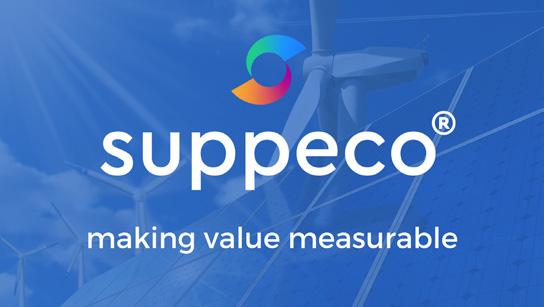

BOOK A DEMO
Ask us about collaborative relationship driven co-resilience.
Ask us about operational compliance for sustainable supply chain.
In the US, for example, it is governed by a complex system of laws, regulations and policies at federal, state and local levels. One such law is the Federal Acquisition Regulation, which governs the procurement process for federal agencies. It covers everything from how to solicit bids to how to award contracts.

Public sector procurement in the European Union (EU) is largely governed by a framework of rules and regulations called the EU Procurement Directives, which dictates procedures that must be followed by public sector organisations in the purchasing of goods, services and works. There are also EU rules around promoting small and medium-sized enterprises, such as the requirement to divide large contracts into smaller lots that can be bid on by SMEs.
In Southeast Asia, meanwhile, public procurement practices vary significantly between countries, since each has its own laws, regulations and procedures.
That said, there are some common themes that apply across the region:
• Centralised procurement In some countries, public sector procurement is centralised at the national level, with a single agency responsible for managing procurement across all government departments and agencies.

“If you wind the clock back five years, the commercial function in government wasn’t well regarded”
procurementmag.com 45 PUBLIC PROCUREMENT
GARETH RHYS WILLIAMS, GOVERNMENT CCO
Gareth Rhys Williams
TITLE: GOVERNMENT CHIEF COMMERCIAL OFFICER
COMPANY: GOVERNMENT OF THE UNITED KINGDOM
LOCATION: UK
Williams was brought in to lead and transform the Commercial Function of 6,000 staff across all Government departments, with a spend of over £70bn. Involved in all major commercial transactions and disputes across Government.


• Competitive bidding Most countries require public sector organisations to follow a competitive bidding process when procuring goods and services. This typically involves publishing a tender notice, inviting bids from suppliers and awarding the contract to the supplier that offers the best value for money. Some of the frameworks around public sector procurement in Southeast Asia are based on national laws or regulations, while others are shaped by international standards and guidelines.
In the UK, public sector procurement is marshalled largely by a framework called the Public Contracts Regulations 2015, which sets out the rules and procedures

WATCH NOW 46 April 2023
Gareth Rhys Williams at Procurement & Supply Chain Live 2022
that must be followed by public sector organisations in their procurement activities. The Regulations also require public sector bodies to consider environmental, social and ethical considerations when procuring goods and services.
One of the most important procurement positions in the world are those that relate directly to government procurement activities.
Procurement in the UK Government
Gareth Rhys Williams is Government Chief Commercial Officer at the Cabinet Office, which supports the British Prime Minister and helps ensure the effective running of government. Williams, who has been in the
role for seven years, oversees 6,000 staff across all departments, and controls a spend of over £70bn. He is involved in all major commercial transactions across Government.
As public and private procurement continues to converge, boosting both the quality of public services and profits, many companies are wondering how they may tender their products and services and collaborate with the government. For this, it’s important that those relationships are dealt with efficiently.
Public contract management best practice
“There's no point in managing the vendor if you don't also manage the contract,” Williams says. “So we've had 12,000

procurementmag.com 47 PUBLIC PROCUREMENT
people now do the basic-level contract management training, and it’s working really well.”
This goes to many aspects in procurement which in recent years have been highlighted as requiring the same level of supervision and care after implementation. Just as digital transformations are not just one-off overhauls, but require steering after launch, contract management abides by the same rules of engagement, and if handled correctly, can yield some impressive fiscal results.
“We have saved £720mn so far,” says Williams, as both the profitability, and the status of public contracts gain traction.
“If you wind the clock back five years, the commercial function in government wasn't well regarded. We had some great people, but too often our good people
left and we didn't have the structure or resources to tackle the workload we had. So we set up the Commercial Assessment and Development Centre. If you are a commercial specialist and you want to enter the Government Commercial Function, you undergo classroom-based tests and training. Its purpose is to recruit commercially astute professionals into the Government Commercial Function.”
How public procurement reflects public service

The importance of procurement was catapulted into the spotlight following global supply chain disruptions, as we all now know. This realisation wasn't confined to private procurement alone.
Williams says: “We're trying to make the point that we're taking the procurement
“There's no point in managing the vendor if you don't also manage the contract”
48 March 2023 April 2023
GARETH RHYS WILLIAMS, GOVERNMENT CCO
exercises seriously now. We're tracking our training, and we're tracking our assessments, and it's delivering. In 2021 we made savings of £3.7bn. That is seven teaching hospitals. However you look at it, that is a massive freeing up of cash to reinvest in public services.”
Williams points out that at the same time, government vendors are getting more profitable. “So this is about taking waste out of the system. This is not about just beating up on our vendors. We need them to be profitable.”
And of course, the impact of efficient government procurement functions, expands into the wider economy. “Our delivery is getting better and better, year-on-year, and we are working well for the economy,” Williams says.
To ensure that this process is as effective as possible, all parties involved require
efficiencies both on the demand and supply side of the equation. So another policy that the UK Government has put in place is around prompt payment. Williams says: “SMEs are being paid dramatically faster now, not just by us, but through the supply chain.”
The Public Procurement Bill
In light of all the regulations and laws that govern procurement, Brexit was a huge stimulus for change.
Since one in every three pounds of public money, some £300bn a year, is spent on public procurement, the UK government introduced the UK Procurement Bill, to adapt to the change and lay down the necessary framework for an effective domestic procurement system.
The bill includes a number of regulationmaking powers which are necessary to ensure

procurementmag.com 49 PUBLIC PROCUREMENT

“The Public Procurement Bill promises simplicity, flexibility and transparency”
50 April 2023
GARETH RHYS WILLIAMS, GOVERNMENT CCO
that the legislation will continue to facilitate a modern procurement structure for many years to come and will allow the UK to keep pace with technological advances, new trade agreements and ahead of those who may try to use procurement improperly.
Williams says: “The Procurement Bill will replace the current EU regimen for public procurement. It promises simplicity, flexibility and transparency. As part of the new bill, the government plans to create a simpler and more flexible commercial system in the hopes of better meeting the needs of the country while remaining compliant with international obligations. So this is a fundamental change.”
Commercial Functional Strategic Plan

“Now we have left the European Union, it’s all about simplification, streamlining, and making us more business-to-business in the way that we work with our vendor base and our supply chain, but with everything underpinned by the fair and transparent backdrop we need for public procurement, to make sure there's no hint or trace of corruption or favouritism.”
And there is still so much to be done, and the project is no small feat, but it is one with massive resources and energy being pooled into it. Williams highlights that there is a lot of training to do in this regard. He says: “There's 15,000 or so procurement professionals in Government that we need to train around the new regulations. We also need to invest in updating our databases, to give much more transparency for citizens to see how contracts are delivering. We also need to be able to track our contract pipelines, so we can see how different vendors are performing. This is all part of our Commercial Functional Strategic Plan.”
procurementmag.com 51 PUBLIC PROCUREMENT
DATA ANALYTICS IN PROCUREMENT: CREATING VALUE THROUGH OPTIMISATION
Tai Software’s Transportation Management System exemplifies how data analytics empowers freight to achieve maximum efficiency. CEO Walter Mitchell shows us the way.
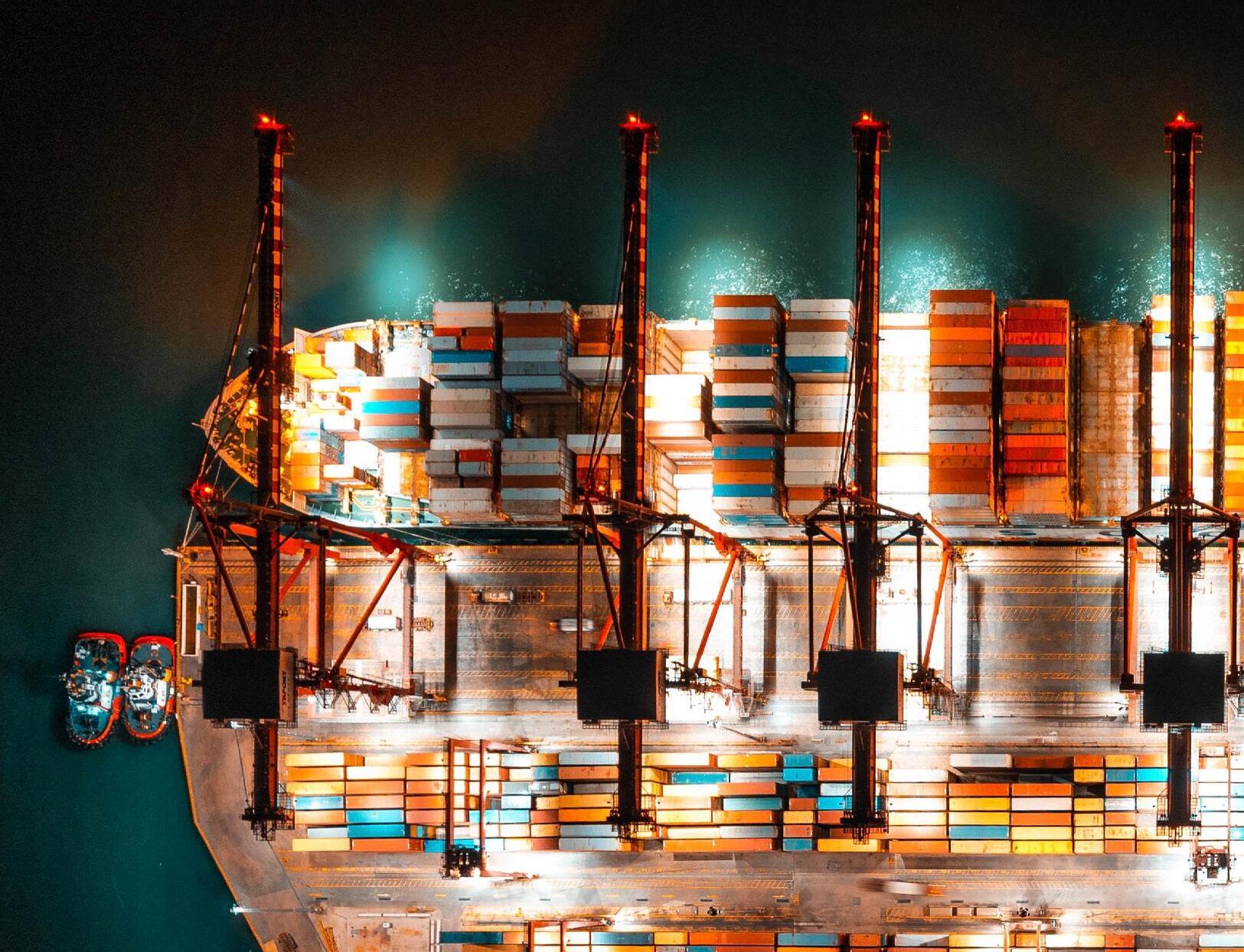 WRITTEN BY: ILKHAN OZSEVIM
WRITTEN BY: ILKHAN OZSEVIM
52 April 2023
AI
IN PROCUREMENT
OPTIMISATION

DATA ANALYTICS procurementmag.com 53

54 April 2023
From the standpoint of augmented effectiveness, procurement and data analytics are now inseparable; any procurement organisation that has their finger on the pulse of global events will be utilising data analytics throughout their entire ecosystem.
Tai Software’s TMS (Transportation Management System) uses historical data and third-party tools to bring together multiple sources of information and display them in a single place that’s easy for users to consume. This single location becomes the centre of the procurement process. Within this process, the system performs data analytics against historical information to present both summarised ‘lane data’, as well as comprehensive and detailed carrier and shipment data.
Tai’s truckload quoting page, for example, provides the user with a single location where all background analytics are surfaced to empower their decision making.

“We've got analytics implemented from outside sources, like DAT, Parade.ai, and
WALTER MITCHELL CEO, TAI SOFTWARE
DATA ANALYTICS
“USING MULTIPLE DATA SOURCES ALLOWS AN OVERVIEW WHICH, OF COURSE, ADDS CONFIDENCE BECAUSE OUR CLIENTS ARE ABLE TO SEE ALL OF THESE DIFFERENT SOURCES – IN A SINGLE SNAPSHOT”
procurementmag.com 55
Inform your supply chain resilience planning with our time-measured report series

Ensuring the agility and resilience of your business and supply chain starts with identifying the risks.

Download our report to start your resilience planning today.
Download ASCRI Report
Because
Hindsight
Insight Beats
Greenscreens.ai – all tools that are involved in the analytics work,” says Walter Mitchell, Tai Software’s CEO.
Mitchell has more than 17 years experience in architecting software applications and leading entire teams that build software applications for businesses.
His prolific career has been focused on translating complex business needs into practical software applications, emphasising efficiency and usability, while delivering solutions that solve business problems and help customers.
He tells us that Tai’s TMS (Transportation Management System) is focused primarily on freight brokers moving North American domestic freight. They specialise in FTL (FullTruckload) and LTL (Less-than Truckload) freight processes.

Concerning Tai’s TMS, which drives freight into the modern world, he says: “We're searching all that data in one place, providing a summarised view of where all the analytics are displaying results, including our own – most notably showing data relating to lane history.”
Making an important distinction he says: “It's one thing to run data analytics – which
“IT'S PRETTY EASY FOR ALL OF US TO SAY: IF I COULD JUST ELIMINATE A COUPLE OF THE MISTAKES I MAKE ALONG THIS ROAD, LIFE COULD BE SO MUCH BETTER ”
procurementmag.com 57 DATA ANALYTICS
WALTER MITCHELL CEO, TAI SOFTWARE
is, of course – extremely important, but making sure you have the tools that run effective analytics and putting their results within the context of how the users actually need them? That’s going the extra mile to provide far better results. And that’s what Tai’s TMS is all about.”
Informing procurement decisions through data analytics
Tai’s TMS is designed to be the source of data driven decisions. Recently, they transitioned a brokerage to their TMS to give them end-toend automation – from posting to booking, dispatching to tracking – using Tai’s data integration to help provide both predictive, as well as historical analytics. Bringing these data points together along with various other valuable sources allows their clients to make decisions based on all the data that’s available, rather than just having to rely on a single source.
Mitchell says: “These reps can now interact with carriers more smoothly than ever before, as carrier profiling used to involve pen and paper, and the strength (or lack thereof) of the broker’s memory. With the capacity insights, reps have access to a much broader view of capacity, and this allows them to cover loads much earlier, and to keep more off the spot market. Now they can easily see rates in their TMS, being provided with data analytics that can compare between systems to identify any issues early on and ensure that each load is rated accurately.”
How Tai ensures procurement data is accurate, complete, and of high quality

By leveraging multiple sources of data, Tai are able to use each data source as a verification against all others.
“This allows you to evaluate the accuracy of the data simply, because the market shifts very
58 April 2023
quickly at times,” says Mitchell. “And when it shifts, some of the analytics – especially if you’re looking in the rearview mirror – won't always be as up-to-date as you want.

“However, using multiple data sources allows an overview that, of course, adds confidence, because our clients are able to see all of these different sources in a single snapshot. By looking across the whole set of available data points, users are able to evaluate which ones are the most accurate.”
Fraught freight: addressing key procurement challenges with data analytics Mitchell says that making sure there is enough data available for a specific lane is a critical part of the process. When the amount of data is scarce, it’s much more difficult to use data alone to improve confidence.
“We end up having to widen the range to get more data and, sometimes, that will reduce the accuracy of the specific request.”
For the more experienced pros, however, having data analytics for common lanes adds trust. “When you get into an area that's less familiar, that's where data provides even more value,” he says.
“That's why we focus on data analytics in the first place: it helps make sure that
“WE'VE GOT ANALYTICS IMPLEMENTED FROM OUTSIDE SOURCES LIKE DAT, PARADE.AI, AND GREENSCREENS.AI – ALL TOOLS THAT ARE INVOLVED IN THE ANALYTICS WORK”
procurementmag.com 59 DATA ANALYTICS
WALTER MITCHELL CEO, TAI SOFTWARE
we're making good decisions, that we're making smart decisions, and that we know where we can generate revenue off of the shipment or margin.”
According to Mitchell, for uncommon lanes in the world of freight, “you really need the analytics to support your decision-making process”.
“For the less experienced brokers, they're not going to have all the experience to know that, on certain days, a particular lane is actually going to provide more value.”
He continues: “For brokers, the data provides such a tremendous step forward since they can negotiate the terms of the shipment without having to doubt themselves or take a loss.

“It allows them to leapfrog forward by years of experience.”
The road to success
Using data analytics for procurement is an essential part of the process. “It’s important to use as many tools as are available to ensure that you have the confidence to accurately negotiate.
“When we are working in a world where we're transactional and we're running a high volume of transactions; one of the things that I think we would all be really happy with is knowing we're going to make mistakes.
“There will be times when we make a bad call – we can't cover a load, we can't pull the margin that we’re looking for out of this run. But what we can do with these tools is allow you to reduce the number of mistakes, even if it's just 10%. If we can eliminate some of the mistakes or their severity, it allows for brokers to win so much more.”
Mitchell concludes: “It's pretty easy for all of us to say: ‘If I could just eliminate a couple of the mistakes I make along this road, life could be so much better’.
DATA ANALYTICS
60 April 2023

“THAT'S WHY WE FOCUS ON DATA ANALYTICS IN THE FIRST PLACE; IT HELPS MAKE SURE THAT WE'RE MAKING GOOD DECISIONS, THAT WE'RE MAKING SMART DECISIONS, AND THAT WE KNOW WHERE WE CAN GENERATE REVENUE OFF OF THE SHIPMENT OR MARGIN”
procurementmag.com 61
WALTER MITCHELL CEO, TAI SOFTWARE
THE NEXT FRONTIER OF CONTRACT MANAGEMENT
Charlie Bromley-Griffiths, Corporate Counsel at Conga, demonstrates why the future lies in turning traditionally vertical contract management to the horizon
WRITTEN BY: ILKHAN OZSEVIM
Over the last year, there have been several major legislative changes to how business operations and data exchanges will be conducted. With the Electronic Trade Documents Bill, the Northern Ireland (NI) protocol data sharing agreement, and the Schrems II legislation all now in effect, leaders have to navigate one of the most complex regulatory landscapes as they enter a period of great economic uncertainty.
“There can be no doubt that enterprises have huge digital transformation projects ahead of them,” says Charlie BromleyGriffiths, Corporate Counsel at Conga.
“All businesses will have to review their operations to ensure personal data transfers are lawful and compliant, and remain vigilant for the road ahead. After all, risk comes with
every contractual agreement; however, it is important to mitigate as much risk where possible.” Bromley-Griffiths emphasises that it is never a good idea to grow complacent, especially with contract management. “As we enter a recession,” she says, “budgets are shrinking and customers’ buying behaviours are shifting.”
Gartner reports that most organisations have been forced to re-evaluate their go-to market strategies. Commercial agility is proving key to businesses’ survival. Leaders must stay ahead of any emerging market trends by adjusting their revenue operations (RevOps) model accordingly.
The current state of data and contract management
Early into the pandemic, contract management and post-signature solutions
62 April 2023
procurementmag.com 63 CONTRACT MANAGEMENT
MEDIA SALE The connected supply chain turns volatility into opportunity.

The e2open connected supply chain platform provides the end-to-end visibility and collaboration you need to tackle unpredictability. Build trust and confidence with your channel, supply, logistics, and global trade partners. Take control of supply constraints through direct procurement and meet customer commitments in the face of disruptions and scarcity. The connected supply chain. Moving as one™. www.e2open.com E2open and the e2open logo are registered trademarks of e2open, LLC, or its affiliates.
were accelerated. Customers and suppliers raced to seek variations to terms, understand the status of performance, to identify obligations, rights, and the implications of contract change and amendment.
“There was an increased focus on the application of artificial intelligence (AI) such as Large Language Models to provide more consistency of service and better risk management,” says Bromley-Griffiths, “especially when it came to managing the increase in paperwork and document drafting.”
A recent study by Globality revealed that 90% of procurement leaders are currently in the process of transforming their operating models, with 87% focusing on building data teams that gain more predictive insights and deploy new technologies to better meet the challenges of today’s volatile business world.
More recently, Schrems II required businesses to carry out risk assessments before transferring data from the EU and EEA to countries that aren’t deemed adequate, complying with new international data transfer regulations. Bromley-Griffiths says: “Since then, companies have had to put a whole range of new processes in place to comply with export jurisdictions, execute transfer impact assessments, and establish new cross-border data flows.
“In fact, many will have had to remediate hundreds, if not thousands, of existing contracts to include the updated standard contractual clauses (SCCs).”
She continues: “As a result, organisations need to be far more proactive, anticipating change rather than responding to it; ‘doubling down’ on extracting value from their current resources and better managing their costs; and constantly reviewing their means of working. However, this requires a far more comprehensive and flexible RevOps model.”
CHARLIE BROMLEY-GRIFFITHS CORPORATE COUNSEL, CONGA
procurementmag.com 65 CONTRACT MANAGEMENT
“Moving forwards, companies should address these challenges head-on by regularly reviewing their internal operations and having clear measures in place”
CHARLIE BROMLEY-GRIFFITHS CORPORATE COUNSEL, CONGA
66 April 2023
“By taking the technical steps more proactively, organisations can build up critical capabilities and maintain their customers’ trust”
Establishing a more effective RevOps model
According to Bromley-Griffiths, without an effective contract management structure, a gap in value can arise over the lifetime of the contract, wherein the anticipated benefit at the start of the arrangement is gradually eroded over time. “Effective contract management can help avoid this by enabling enhanced value to be derived from contracts,” she says.
Digital transformation programmes are incredibly complex. Therefore, leaders should view these recent legislative changes as an opportunity to reassess and streamline their vital business processes. Rather than rushing digital change programmes, adopting new technologies, and scaling these initiatives at pace, leaders should instead be more strategic with their investments. She says: “It is best practice to start off by reviewing legacy systems and establishing clear objectives prior to implementation, prioritising vital business processes.”
She points out that organisations need to think beyond how they incorporate technologies, such as contract lifecycle management, machine learning, and AI, into their contracting lifecycles, and how it can be managed from a company-wide perspective. “Rather than approaching contract management in a vertical way, leaders need to consider how contracting technology, and contracts themselves, can be drawn up more comprehensively and collaboratively across different business functions.
“It is also about embedding a pro-data culture throughout the organisation – from the board to the sales team. This itself can be challenging as the organisation must first establish a system to identify, assess, and manage risk exposure while ensuring they have the appropriate measures and technology in place that are aligned with clear business goals.”
procurementmag.com 67 CONTRACT
MANAGEMENT
CHARLIE BROMLEY-GRIFFITHS CORPORATE COUNSEL, CONGA
Complete end-to-end contract management
End-to-end contract lifecycle management maximises the value of every contract with tools to automate and standardise processes, lower risk and boost compliance, as well as speed up contract management tasks and improve efficiency. This can only be achieved, though, if organisations have their data in order first. Bromley-Griffiths says: “It is vital that leaders review their internal structures and unify systems of record to ensure all
data is accounted for, flowing between teams. “Leaders also need to identify and streamline the business processes and implement technology to complement their revenue goals. This can allow departments to focus their time and resources on the more complex, strategic issues. Only after reviewing legacy systems, prioritising key revenue processes, and adopting new solutions in a phased manner will contract intelligence technology provide genuine benefits and improve overall business performance.
68 April 2023 CONTRACT MANAGEMENT
“Organisations need to be far more proactive by anticipating change rather than responding to it”
“Teams will then be able to focus on operations, benefitting from the faster delivery of products and services to market without being held up by unnecessary process and legal aspects. By establishing a cohesive and proactive RevOps strategy, organisations will be able to identify trends, areas of improvement, and provide insight into data flows to help accelerate revenue streams.”
Looking towards the future
Now, businesses are in the midst of a new digital landscape and there’s no doubt
that there will be other changes in the future. “Moving forwards, companies should address these challenges head-on, regularly reviewing their internal operations and having clear measures in place,” says Bromley-Griffiths.
“By taking the technical steps more proactively, organisations can build up critical capabilities and maintain their customers’ trust. In return, businesses will be better prepared for all outcomes and enter the new frontier of contract management.”
procurementmag.com 69
KRIS OSWOLD, VP OF UPS: ADVOCATE OF SUPPLIER DIVERSITY

Vice President of Global Supplier Diversity at UPS, Kris Oswold, on why supplier diversity is the blueprint of value creation
 WRITTEN BY: ILKHAN OZSEVIM
WRITTEN BY: ILKHAN OZSEVIM
70 April 2023
ADVOCATE DIVERSITY

procurementmag.com 71 SUPPLIER DIVERSITY

72 April 2023
ccording to Kris Oswold, supplier diversity is a business strategy that addresses the systemic biases resulting in fewer opportunities, limited access, and less capital available to diverse business owners. An executive with more than 33 years at UPS, Oswold – Vice President of Global Supplier Diversity – brings a wealth of experience to the role.
“For a corporation like UPS, supplier diversity means working to ensure thirdparty spend goes to companies whose owners reflect the diversity of the population,” she says.

“The data is clear, and the experiences are real. Without intentional efforts to develop and include Black, Hispanic, Asian, Native American, women, veteran, LGBTQ+, and disabled-owned businesses, these companies do not have equitable access to contract opportunities with corporations.”
At UPS, contracts are awarded based on who brings the best value. “Diverse-owned businesses often just need the opportunity to show what they can do to a procurement group that’s open to new suppliers and understands the business value of diversity,” Oswold says.
The benefits that supplier diversity can bring to businesses and commerce
Small and medium-sized businesses
procurementmag.com 73
A

are critical to the health of commerce and economies. Oswold highlights the importance of understanding that “diverse populations start more businesses than majority groups, and these businesses are spread across all industries and located throughout the US”.
“Buying from diverse businesses also brings incredible value to companies. At UPS, customers expect the company to value diversity and take actions that
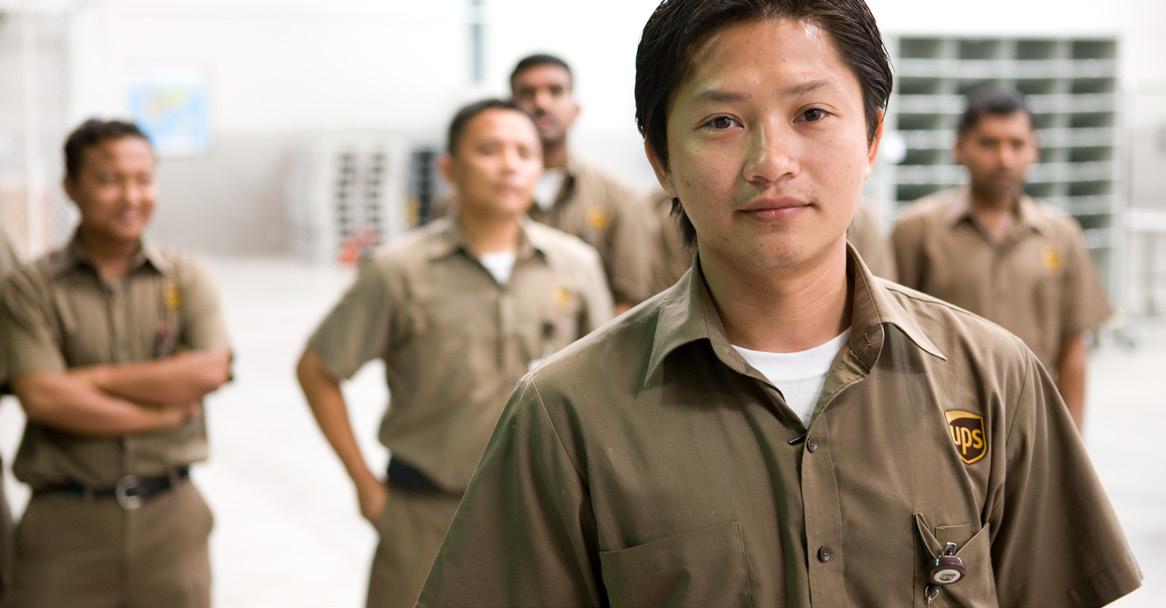
drive economic equity. Data shows that, when a customer becomes aware of the supplier diversity, their perception of the UPS brand and likelihood to purchase from UPS improves.
“Additionally,” she continues, “employees expect companies to address inequities, with both current and potential employees thinking more favourably of brands that are committed to supplier diversity.”
All of this is, of course, in addition to the benefits of finding great new suppliers: “Diverse companies are often more flexible, innovative, and efficient – they just need the opportunity to show what they can do.”
How supplier diversity relates to ESG and sustainability
Oswold highlights that supplier diversity is an integral part of building longterm success.
KRIS OSWOLD VICE PRESIDENT OF GLOBAL SUPPLIER DIVERSITY, UPS
“Combatting forms of ignorance and hate is part of what must be done to help ensure employees, customers and suppliers have the inclusive and equitable communities they need to thrive.”
Today, driving ESG initiatives across
“Employees expect companies to address inequities, with both current and potential employees thinking more favourably of brands that are committed to supplier diversity”
procurementmag.com 75 SUPPLIER DIVERSITY
UPS is more important than ever. “UPS is committed to pursuing solutions to improve the wellbeing of our people, customers, communities, and other stakeholders.

“UPS understands the strong connections between environmental and social justice and is making steady progress to build a more sustainable, resilient, and inclusive world.”
The main barriers to supplier diversity and their solutions Oswold says that in order to overcome barriers to achieving supplier diversity, the first thing that’s required is “an increase in awareness of its value in corporations, and among diverse business owners.
“Data from market research firm, Hootology,” she says, “reveals that awareness of supplier diversity among US business decision-makers hovers in single-digit percentages.
“One of the core goals of the UPS supplier diversity strategy is to raise awareness both inside and outside the company. In addition, only a small fraction of diverse businesses obtain third-party diversity certifications. Getting a certification that the business is at least 51% owned, managed, and controlled by diverse individuals is the first step to leveraging supplier diversity as a channel to grow the business.
“Second is internal to corporations within the procurement staff and stakeholders,” she says. “Much like the biases companies have recognised and been addressing for years regarding a lack of diversity in hiring and promotions, similar biases exist in the supplier selection process.
“It can feel safer to hire a company where there is already familiarity and risky to take a chance on a business only recently discovered. Mitigating risks and getting people
76 April 2023 SUPPLIER DIVERSITY
comfortable with change is an important part of a supplier diversity strategy to help ensure diverse businesses win contracts and are not simply invited to bid in vain.”
The true value of supplier diversity
Oswold says that supplier diversity brings “real, measurable business value, while simultaneously broadening economic inclusion”. Companies should approach it as a business strategy with the focus, resources, and accountability necessary to achieve results.
“Diversity, equity, and inclusion efforts must expand beyond employees, and should include suppliers and customers as well. With an authentic approach, if you care about diversity and inequity anywhere, you must care about it everywhere.”
Kris Oswold is Vice President of Global Supplier diversity at UPS. Prior to leading supplier diversity, Kris designed and executed a variety of UPS business processes across the globe, including customer and technical support, billing, accounts receivable, and human resources operations.
Driving change through the large organisation is where Kris excels, so being tapped to lead a rejuvenation of supplier diversity at UPS was a great fit.

“Diversity, equity, and inclusion efforts must expand beyond employees, and should include suppliers and customers as well”
KRIS OSWOLD VICE PRESIDENT OF GLOBAL SUPPLIER DIVERSITY, UPS
procurementmag.com 77
WOMEN
Earlier this month Procurement Magazine released its list of TOP 100 Women – here we look back at who made the prestigious TOP 10
 WRITTEN BY: KAYLEIGH SHOOTER
WRITTEN BY: KAYLEIGH SHOOTER
78 April 2023
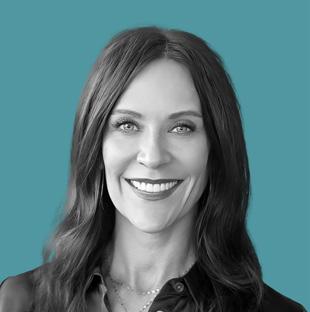

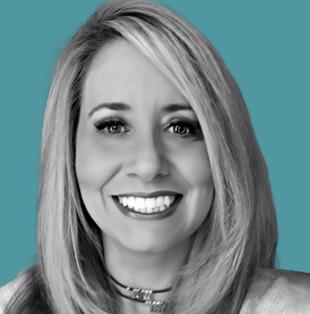


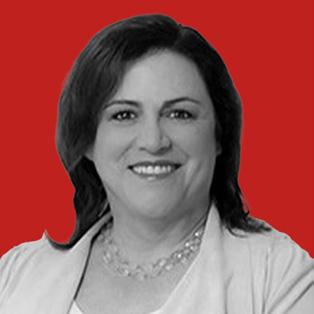




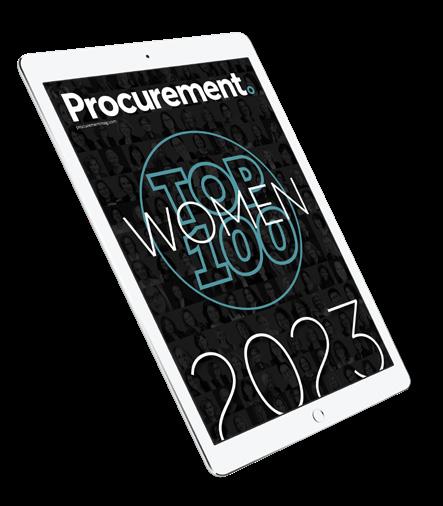
Read on for TOP 10, or view the full TOP 100 online TOP 100 TOP 10 procurementmag.com 79
Amy Jones
Chief Procurement Officer
Samsung Electronics
https://www.linkedin.com/in/amy-p-jones/
Amy is currently the Chief Procurement Officer at Samsung Electronics. The company has been, from its inception in 1969, a global leader in technology, since growing into one of the world’s leading technology companies and becoming recognised as one of the top 10 global brands.
Amy has been the Chief Procurement Officer at Samsung Electronics since July 2020. Prior to commencing her journey there, Jones spent just shy of six-and-a-half years at Tata Communications, a leading digital ecosystems enabler with over 300 Fortune 500 clients. She joined Tata as Assistant Procurement Manager, before being promoted to Director of Procurement less than two years later.

TOP 10 10
80 April 2023
Severine Thery
Chief Procurement Officer, Direct Sourcing
L'Oréal
https://www.linkedin.com/in/severine-thery-bb637554/
Severine has over 20 years in procurement and is a specialist in direct sourcing (raw material, packaging, contractmanufacturing), particularly focused on satisfying stakeholders' needs while being self-motivated and results-driven.
Severine currently holds the title of Chief Procurement Officer Direct Sourcing at the international beauty giant L'Oréal.
She has been with the company since 2000, joining as Packaging Buyer - France, Mass Market Division, before climbing the ranks to numerous positions such as VP of Direct Sourcing - Americas, Packaging Buyer - Europe, Luxury Division, Head of Raw Material Sourcing - Americas, and others.
While working at L'Oréal, Thery studied at and graduated from the MIT Sloan School of Management with a Master in Business Excellence. On top of this,
Thery also has a degree in Chemical Engineering, awarded by HEI - Advanced Engineering Studies.
Severine possesses a unique skill set that is required for success in her specialist field, including transversal, systems-wide thinking and the ability to engage across the entire value chain along with all functional disciplines – including R&D, Manufacturing/ Supply Chain, Brand Marketing, and Finance.
Severine has commented that the key to her success is being able to interface efficiently with suppliers and departments across the organisation to develop and implement new ideas in a collaborative mindset. During her extensive career at the beauty company, Severine has acquired many skills: strategic sourcing, market analysis, supplier relationship management, risk management (risk anticipation and crisis management), stakeholder engagement, benchmarking, cost optimisation, cross-functional team building, and much more.
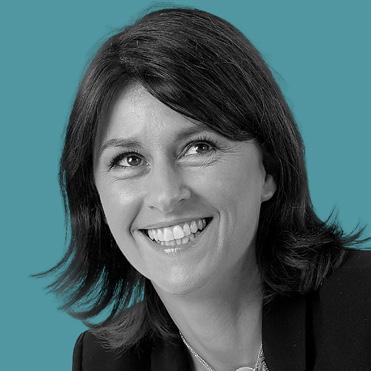
TOP 10 9
procurementmag.com 81
Florence Tinsley-Roy
Global Chief Procurement Officer
PwC
https://www.linkedin.com/in/florencet/
Florence is a proven expert in the transformation of procurement teams and developing global strategies alongside change management, with experience of offshoring, outsourcing, negotiations, and vendor management.
She is currently working as the Global Chief Procurement Officer at PwC, an international professional services firm employing over 327,000 people in 152 countries.
Florence has held the position of Global Chief Procurement Officer since June 2022, after joining as Global Technology Procurement Leader in 2018 and later being promoted to Global Procurement Leader in 2021.
In her challenging role as Global Procurement Leader, Tinsley-Roy is responsible for leading the global procurement team that negotiates global agreements for the benefit of the PwC network firms, operating in the areas of technology, data/knowledge, travel,
and marketing, as well as co-leading the supply chain workstream for the company's net-zero programme.
Prior to joining PwC back in 2018, Florence spent over six years at the consulting giant EY, holding two titles; Director Global Procurement - Technology and External Content Categories and Director Global ProcurementProducts & Services Category & Process & Tools Leader.

Her role as Director Global Procurement - Products & Services Category and Process & Tools Leader included leading a global procurement team of 150 professionals and being responsible for the management of a US$2bn spend portfolio of indirect spend categories.
Her previous procurement experiences include Barclays, AstraZeneca, and Fujitsu. Through these experiences, she has acquired skills such as procurement transformation, thought leadership, strategic sourcing, category strategy, cost management, and more.
TOP 10 8
82 April 2023
7 Natasha Gurevich
Chief Procurement Officer
Nike
https://www.linkedin.com/in/natasha-gurevich-b66b10/
Natasha is the Chief Procurement Officer at the global sportswear company Nike, starting with the company in March 2021.
Prior to Nike, Natasha spent just over three years at Salesforce, working as Vice President Global Procurement. This role entailed strategising and implementing an approach to spend assessment; and driving team collaboration within Global Procurement, Shared Services, Legal, and Finance to elevate the level of services provided by Sourcing, outsourcing 80% of transactional activities and 80% of contract administration volume.
During the pandemic, Gurevich created a collaborative, supportive environment that brought the team closer through virtual Happy Hours, Digital Detox Days, and mandatory time off.
Her other procurement experiences include: Senior Director, Enterprise Sourcing at
McKesson; Global Strategy Leader, Corporate and Professional Services at IBM; and Director, Global Procurement at PayPal, among others.
Gurevich has over 18 years of procurement experience, starting her career as Manager, Strategic Sourcing at Visa back in 2005, before climbing the ranks to many high-level roles.

She has a consistent track record of delivering significant cost reductions and continuous improvement initiatives, on top of success in deploying processes and procedures to streamline corporate operations, increase efficiency, and enhance profit performance.
On top of her day job, Natasha is a Wish Granter for the Make a Wish Foundation, describing it as “a privilege to put a smile on the face of a child with a life-threatening illness by fulfilling their wishes".
TOP 10
procurementmag.com 83
6 Sapna Alva Tariyal
Chief Procurement Officer, Asia Pacific Capgemini
https://www.linkedin.com/in/sapna-alva-tariyal-35884177/
Sapna has over 24 years of experience in sourcing, vendor governance, and supplier management. She is currently working as Chief Procurement Officer, Asia Pacific at Capgemini, the consulting giant specialising in industries such as insurance, energy, automotive, and more.

Prior to joining Capgemini, Sapna held numerous procurement positions including SVP, Head of Sourcing at Societe Generale Global Solution Centre; Director Procurement at Fidelity Investments, Assistant Manager Purchase at Aricent, and more.
Her role as Senior Manager Procurement at Fidelity Investments involved developing procurement strategies across the IT and travel categories for India, managing the Governance of the extensive Vendor Management Program across various business units within the organisation, and supporting end-to-end of all IT procurement.
Tariyal has numerous University degrees: a Diploma in Materials’ Management, Logistics, Materials, and Supply Chain Management, a Bachelor of Law, LLB General, and a BA (Economics & Commerce).
A people-management professional who believes in having the right attitude, Sapna embraces learning opportunities that have helped her on her professional journey from the office to the army.
Before commencing her corporate procurement career, Sapna spent over six years as a Captain – a multi-faceted role – in the Indian Army, responsible for formulating budgets for the timely procurement of inventory, developing long-term partnerships with suppliers, ensuring on-time payments for long-term relationships, and more.
When thinking back on her career in the Army, Tariyal says: “I followed my dream”.
TOP 10
84 April 2023
5 Alexandra (Massa) Lopez
Chief Procurement Officer
Cisco
https://www.linkedin.com/ in/alexandra-lopez-408b92/
Alexandra is currently working as the SVP and Chief Procurement Officer at the technology giant Cisco, a company that operates in many areas including business, education, and philanthropy.

With the company for over 12 years, she joined as Vice President, Global Business Services, before being promoted to Chief Procurement Officer and VP Global Procurement Services nine years later. She was then ultimately promoted to her current position in 2020. With over 30 years of experience in procurement, she is a great fit for Cisco’s ever-expanding business.
Lopez's procurement career commenced back in 1992 when she joined the logistics giant DHL Express as Manager Marketing Planning. She moved on to General Manager, Managed Services at Hewlett Packard, then Director Global Supply Chain Services at Hewlett Packard, and, finally, VP and CFO, Procurement & Supply at Kaiser Permanente.
On top of her day job at Cisco, Alexandra is a Board Member (previously President) at YWCA Silicon Valley, a non-profit organisation that is dedicated to eliminating racism, empowering women, and promoting peace, justice, freedom, and dignity for all.
She has also been a Board Member at Maui Diagnostic Imaging for over five years and graduated from the University of California, LA, furthering her professional development.
Alexandra's peers describe her as a ‘fantastically talented person’, with ‘excellent financial skills and attention to detail’.
The specific skills she acquired through her career include outsourcing, procurement, supply chain management, change management, strategic sourcing, analysis, and more.
TOP 10
procurementmag.com 85
4 Christina Lascaris
Global Procurement Director PepsiCo
https://www.linkedin.com/in/christina-lascaris-42268a/
Christina is a seasoned procurement expert with extensive experience across a wide range of roles and in various market segments. She is currently working as the Global Procurement Director Ingredients and Seasonings at PepsiCo.
She has been with the company since 2012, when she joined as Global Procurement Director Western Europe - Indirect Procurement, before climbing the ranks to numerous positions, such as Global Procurement Director - Manufacturing Services & Supplies, and Energy and Global Procurement Director - Indirect Services.

In her current role at the beverage giant, Christina is responsible for leading seasonings and ingredients procurement across Europe, developing and ensuring the execution of a strategy that supports PepsiCo’s global nutritional/functional food strategy while partnering with R&D for affordable innovation in the areas of 'healthy' Ingredients & seasonings and
driving competitive advantage through productivity, innovation, and sustainability programmes.
With this role comes high levels of responsibility, but Lascaris is well experienced, having held titles such as Europe Indirect Purchasing Manager at Plastic Omnium and Packaging & Raw Materials Purchasing Manager at Roche, among others.
She has experience in the transformation of indirect organisations through stepping up procurement productivity, developing sourcing strategies and capabilities, and implementing P2P processes, with a proven background in due diligence, change management, and process optimisations.
Through her various experiences, Christina has acquired specific skills such as procurement, outsourcing, change management, purchasing, and more. These complement her University degrees: a master’s in Biology, Biochemistry, Environment & Ecotoxicology.
TOP 10
86 April 2023
Business Design Centre, London



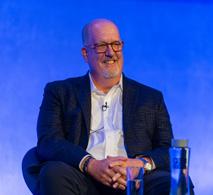





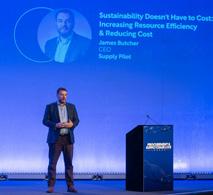







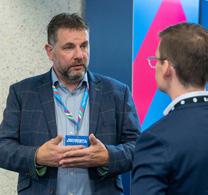

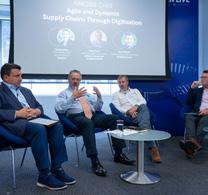




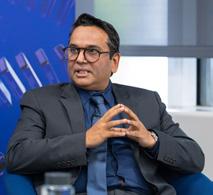





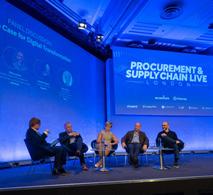


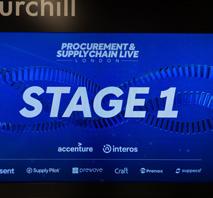






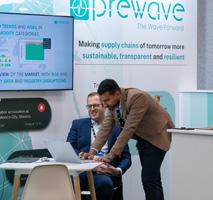
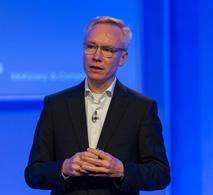








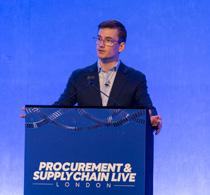
2023
26 - 27 September
GET YOUR PASS SPONSORSHIPS A BizClik Event Join the Event Disrupting Procurement & Supply Chain

88 April 2023
Rhonda England
Global Chief Procurement Officer Deloitte
https://www.linkedin.com/in/rhon-da-england-67069b5/
Rhonda, who has over 30 years of procurement experience, currently works as the Global Chief Procurement Officer at Deloitte, one of the biggest consultants in the world. She has held this position since January 2020.
Prior to joining the management consulting giant, Rhonda spent over 12 years at large-scale retail company JCPenney where she joined as Senior Buyer back in 2007 before climbing the ranks to positions such as Divisional Vice President, ecommerce and Vice President, Corporate Initiatives and Consumer Insights.
Her career commenced back in 1991, when she joined Famous Barr Department Store as a Buyer, after which she went on to work for many different retail companies.
On top of her practical work experience, England boasts two University degrees: a Graduate certificate in Finance from Southern Methodist University -
Cox School of Business and a Bachelor of Science in retail from Indiana University Bloomington. Her procurement peers describe her as an ‘incredibly talented individual’ with ‘tremendous knowledge of the retail industry’ and a ‘deep level of commitment to any task she takes’.
Through her extensive retail and procurement experiences, Rhonda has acquired many skills such as merchandise planning, private label retail buying, assortment, and more. These skills have been heavily endorsed by her retail colleagues, including those at JCPenney.
England has a strong, proven track record of delivering success across procurement, especially in retail.
TOP 10
3
procurementmag.com 89
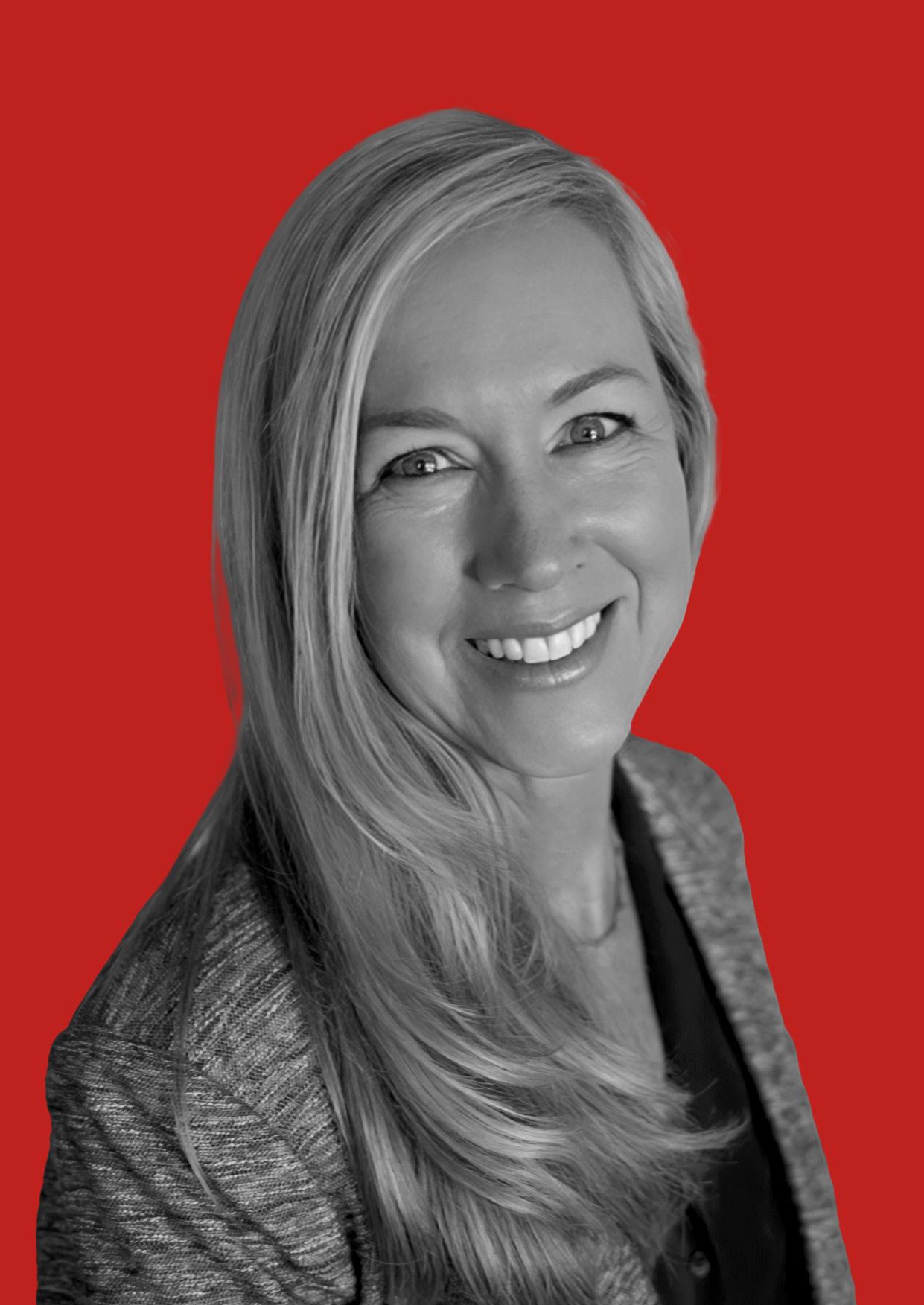
90 April 2023
Patricia Stroup
Chief Procurement Officer
Nestlé
https://www.linkedin.com/in/patricia-stroup-720845132/
For over 15 years, Patricia has helped lead the sourcing of diverse ingredients and materials for the world's largest food and beverage company – Nestlé. She has been with the company since 2006, when she joined as Group Manager before climbing the ranks to numerous highlevel positions such as Assistant Vice President, Global Vice President and Head of Commodities before her current position of Chief Procurement Officer.
Stroup has held the role of Chief Procurement Officer (CPO) twice at Nestlé, first in 2015 and then again from 2020 onwards, following three years as Global Vice President and Head of Commodities. Before joining Nestlé, Stroup spent nine years as a Director at Hilmar Cheese Company, Inc.
In her current role, she is partially responsible for transforming the sourcing of key commodities, not only for Nestlé, but for the global food
industry as a whole. Her and her team's work have brought together priorities on social responsibility, sustainability impact, business results, and building long-term partnerships. Through this, it’s clear to see Patricia’s belief in forging diverse partnerships with a team of international experts.
On top of her extensive experience at the largest food and beverage manufacturer in the world, Patricia also boasts two University degrees: a bachelor's degree in Communications and Public Relations from Virginia Tech and a Master of Business Administration - MBA, Business Administration and Management, Economics from the Purdue University Daniel’s School of Business.
When Patricia is not navigating the complexities of procurement, she can be found catching up on the latest Freakonomics episode or enjoying the surrounding Swiss landscapes.
TOP 10
“I’m a deep believer in forging diverse partnerships”
2
procurementmag.com 91





Digital Content for Digital People THE TOP 100
IN PROCUREMENT OUT NOW Read now
WOMEN

Jennifer Moceri
Chief Procurement Officer
Google
https://www.linkedin.com/in/jennifer-moceri-a825032/
Jennifer is a global executive and change agent with extensive, proven experience in the consumer, automotive, and food ingredients industries. She is recognised as a highly accountable and resilient leader, achieving results by "building collaborative relationships with a relentless focus on continuous improvement to drive step-changes in productivity".
Her passion is around organisational transformation, including building talent and capabilities to enable growth, improve profitability, and increase value to customers. After her successful role of Chief Procurement Officer at Diageo, Jennifer joined Google as their VP, Global Procurement & CPO.
Before joining Google, Jennifer held numerous positions at Diageo, Tate & Lyle, Lear Corporation, and more.
Her role at Tate & Lyle as SVP Chief Procurement Officer included delivering a global procurement transformation where she developed a new operating
model, built global capabilities, and introduced a new level of transparency that was critical to gaining trust, enabling significant cost savings, and raising the profile of procurement as a valued partner in the long-term business strategy.
Prior to Tate & Lyle, Jennifer spent the first half of her career in the automotive industry – much of it with Lear Corporation – where she quickly advanced through the procurement and supply chain function, holding various global leadership positions of increasing responsibility. Through this time, she built a solid foundation of advanced procurement practices, innovative supplier partnerships, lean mentality, and a global perspective.
Jennifer has received numerous recognitions for her hard work, being named on the Procurement Power List UK & Europe as "One to Watch" in 2018 and landing a place in the top 30 of the Procurement Power List UK & Europe in 2019.
TOP 10
DID YOU KNOW: The original name of Google was Backrub.
1
procurementmag.com 95







GET YOUR PASS SPONSORSHIP Watch our 2022 Showreel A BizClik Event Join the Virtual Event Disrupting Procurement & Supply Chain 28TH JUNE 2023 VIRTUAL CONFERENCE
























































































 Charlie Bromley-Griffiths, Corporate Counsel, Conga
Charlie Bromley-Griffiths, Corporate Counsel, Conga










 WRITTEN BY: SEAN ASHCROFT PRODUCED BY: CRAIG KILLINGBACK
WRITTEN BY: SEAN ASHCROFT PRODUCED BY: CRAIG KILLINGBACK


















 WRITTEN BY: ILKHAN OZSEVIM
WRITTEN BY: ILKHAN OZSEVIM












 WRITTEN BY: ILKHAN OZSEVIM
WRITTEN BY: ILKHAN OZSEVIM












 WRITTEN BY: ILKHAN OZSEVIM
WRITTEN BY: ILKHAN OZSEVIM







 WRITTEN BY: KAYLEIGH SHOOTER
WRITTEN BY: KAYLEIGH SHOOTER











































































